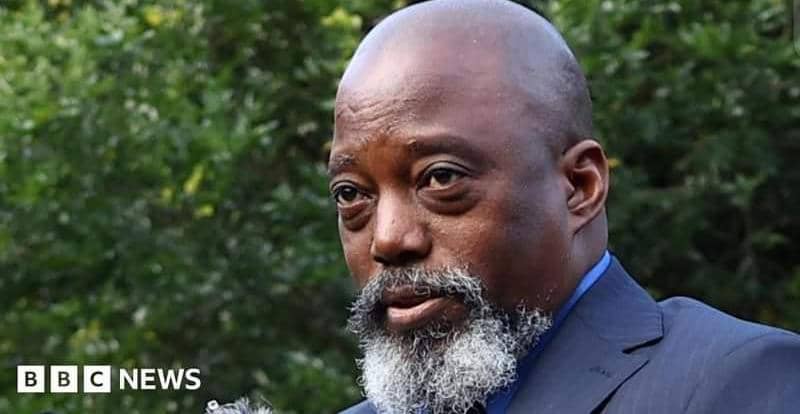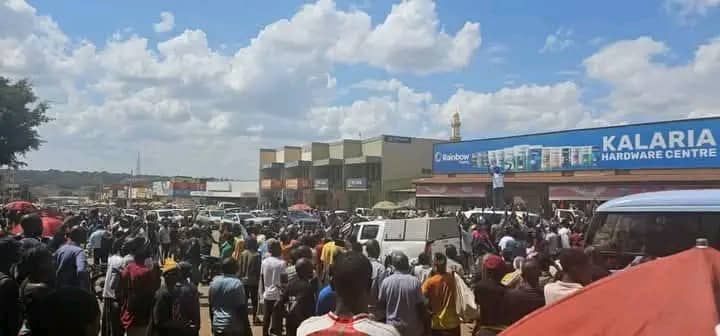By Burnett Munthali
The government of the Democratic Republic of Congo (DR Congo) has taken a bold step to seek the removal of former President Joseph Kabila’s legal immunity.
This move follows serious accusations that Kabila has been backing the M23 rebel group, which currently controls parts of the country’s mineral-rich eastern region.
Justice Minister Constant Mutamba stated on Wednesday that there exists a “substantial body of documents, testimony and material facts” linking the former president to the M23 armed movement.
The resurgence of the M23 rebels has been a major destabilising factor in the eastern region of DR Congo, especially after their notable territorial gains earlier this year.
Joseph Kabila, who is now 53, has yet to comment on these specific allegations but has previously denied any connection with the insurgent group.
Kabila’s tenure as head of state lasted for 18 years, having assumed the presidency after the assassination of his father, Laurent Kabila, in 2001.
He was only 29 years old when he took over leadership of the vast and volatile nation.
Upon stepping down from the presidency, Kabila was bestowed with the title of “senator for life,” a position that grants him legal immunity from prosecution.
Now, in order to build a legal case against him, DR Congo’s military prosecutor has formally petitioned the Senate to revoke this immunity.
Since 2023, Kabila has been residing in South Africa, having officially left the country for academic pursuits.
In a surprising development last month, Kabila announced his intention to return to DR Congo to contribute towards resolving the ongoing conflict in the east.
Shortly after his announcement, there were widespread reports suggesting that Kabila had indeed returned and was spotted in Goma—a city under the control of the M23.
However, these reports were swiftly denied by his political party, the People’s Party for Reconstruction and Democracy (PPRD).
In a significant political crackdown, the DR Congo government banned the PPRD last month, citing its “ambiguous attitude” towards the M23’s occupation of Congolese territory.
Justice Minister Mutamba, who previously ordered the freezing of Kabila’s assets, has now challenged the former president to return to DR Congo to “face justice… and present his defence.”
These developments come as DR Congo and neighbouring Rwanda appear to be inching towards a peace deal aimed at ending the deadly conflict in the eastern region.
Rwanda has consistently denied allegations that it supports the M23 rebels, despite mounting evidence to the contrary.
Last week, both countries signed a preliminary peace agreement in Washington and committed to producing a draft treaty by Friday.
Kabila’s political legacy remains deeply contentious.
After taking office in 2001, he twice won presidential elections, securing his second and final term through a vote that was mired in controversy.
That second term was supposed to end in December 2016, but Kabila refused to vacate office, claiming that it was impossible to organise timely elections.
His extended stay in power led to nationwide protests and numerous fatalities.
Eventually, in January 2019, he handed over the presidency to Félix Tshisekedi, following elections many observers claimed were won by opposition candidate Martin Fayulu.
Fayulu accused both Kabila and Tshisekedi of conspiring to block him from taking power—an allegation both leaders have denied.
As tensions grew between Kabila and his successor, their respective political parties officially dissolved their coalition in December 2020.
Kabila’s relocation to South Africa in 2023 was initially portrayed as a temporary academic pursuit.
In January 2024, he completed and defended a doctoral thesis at the University of Johannesburg, focusing on the geopolitics of African relations with global powers such as the US, China, and Russia.
Now, with his political and personal credibility under threat, Kabila stands at a legal and moral crossroads.
His potential prosecution could redefine the political culture of accountability in DR Congo, sending a clear message that not even former heads of state are above the law.
Yet, the case also risks deepening political divisions and sparking unrest, particularly among his loyal supporters and within volatile regions affected by the M23 crisis.
As the Senate deliberates on whether to lift Kabila’s immunity, all eyes remain fixed on the nation’s fragile justice system and its ability to fairly adjudicate such a high-profile and sensitive case.
The outcome of this legal and political drama will not only affect Joseph Kabila’s future but could also shape the trajectory of DR Congo’s long struggle with governance, justice, and peace.




